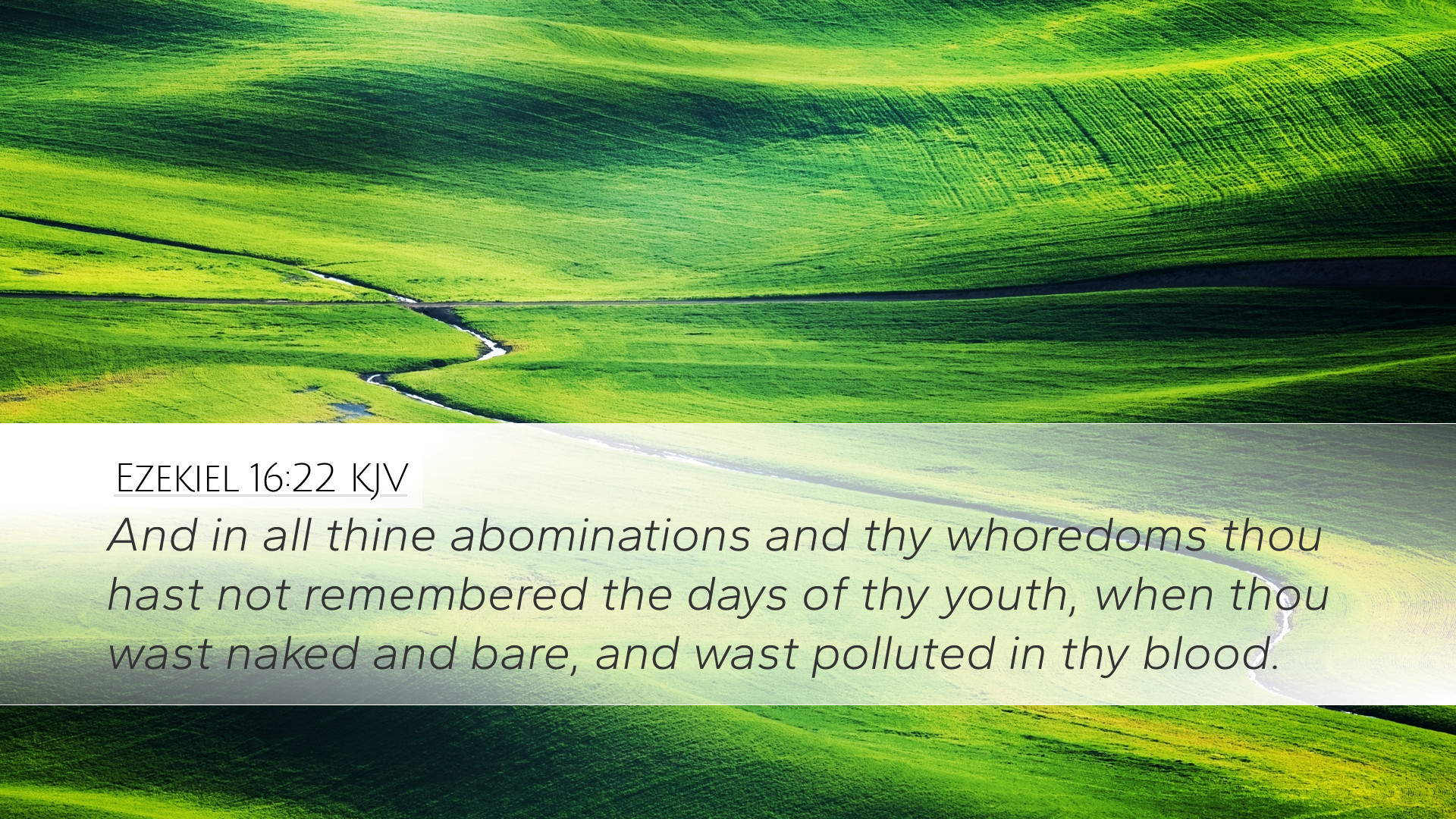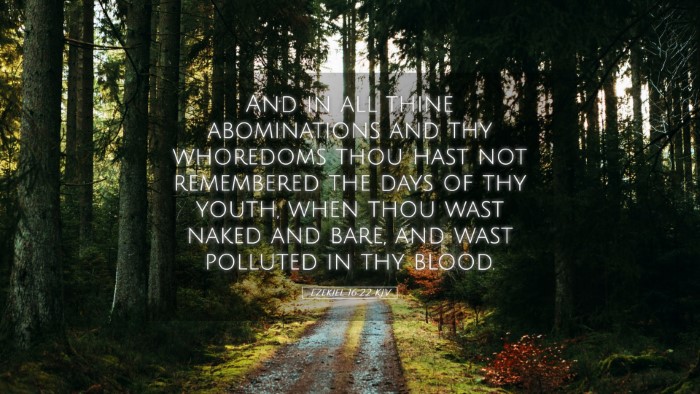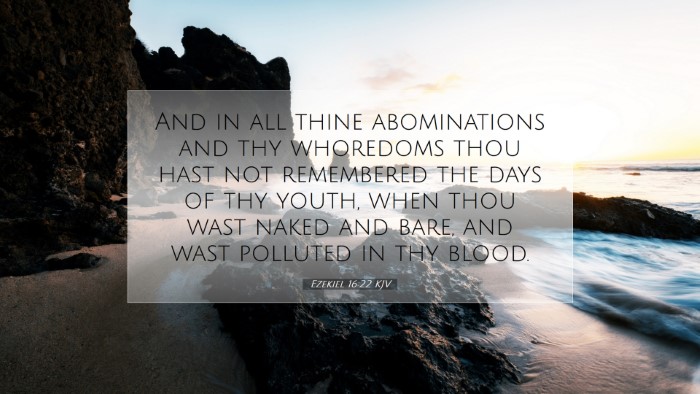Ezekiel 16:22 - Commentary and Insights
Verse: “And in all thine abominations and thy whoredoms thou hast not remembered the days of thy youth, when thou wast naked and wast spoiled and wast polluted in thy blood.”
Overview
The passage from Ezekiel 16:22 encapsulates a powerful indictment against Jerusalem, portraying the city as an unfaithful wife who has forgotten her origins and the grace bestowed upon her. This verse follows a detailed metaphorical narrative that describes Israel's journey from a helpless, vulnerable state to one of pride and unfaithfulness.
Contextual Background
This chapter is part of a larger prophetic message where God, through Ezekiel, uses the imagery of marriage to illustrate His covenant relationship with Israel. The history of Israel's unfaithfulness is recounted here, emphasizing their continual rebellion and the eventual consequences of their actions.
Thematic Elements
- Memory of Humility: The phrase “when thou wast naked and wast spoiled” recalls the initial conditions of Israel's existence before the Lord’s grace was bestowed upon them. It serves as a reminder of humility and dependence on God.
- Unfaithfulness and Abomination: The offenses against God are termed “abominations” and “whoredoms,” highlighting the severity of idolatry and infidelity to God. This imagery demonstrates the betrayal of a covenant relationship.
- Spiritual Awareness: The omission of remembrance indicates a profound spiritual numbness. Understanding the journey from grace to disgrace is vital in comprehending Israel's spiritual condition.
Commentary Insights
Matthew Henry’s Commentary
Matthew Henry notes that this verse highlights the folly of forgetting one’s origins and the foundational experiences of grace. He emphasizes that Israel's lack of remembrance embodies a grievous neglect of God's mercies, implying that when one does not reflect on their former state, they may fall into complacency in their current sinfulness.
Albert Barnes’ Notes
Barnes elaborates on the imagery of nakedness and pollution, interpreting it as symbolic of moral and spiritual degradation. He stresses that recognizing one’s spiritual poverty is essential for repentance. Without such recognition, one remains ensnared in sin. His commentary suggests that the vivid imagery serves to instill both a sense of horror regarding Israel’s standing before God and a longing for restoration.
Adam Clarke’s Commentary
Adam Clarke underscores the importance of remembering God's past deliverances. He posits that this forgetfulness leads to further abomination, showcasing that unrepentant hearts drift further from divine grace. Clarke’s analysis implies that true restoration requires humility, acknowledgment of one's sinful state, and a desperate need for God's mercy.
Theological Implications
- Covenant Relationship: The depiction of Israel as an unfaithful spouse illustrates the deep pain of betrayal within a covenant with God. It emphasizes the seriousness with which God regards His relationship with His people.
- Call to Remembrance: The exortation to remember underscores the necessity for believers today to reflect on their journey and the grace received throughout their lives. The act of remembering is a vital therapeutic and spiritual exercise.
- God’s Justice and Mercy: The verse acknowledges God's righteous judgment against sin while simultaneously hinting at the possibility of mercy for those who turn back to Him in repentance.
Application for Today’s Believers
This verse serves as a profound reminder for pastors, theologians, and students of the Bible about the importance of cultivating a lifestyle of remembrance and repentance. In a contemporary context, it encourages self-examination and a sincere assessment of one's spiritual state relative to God’s expectations.
Leaders in ministry can utilize this passage to teach congregations about the importance of not only remembering God’s past faithfulness but also of living out lives that honor that relationship. It reminds us of the constant human tendency towards forgetfulness and the need for accountability within the faith community.


